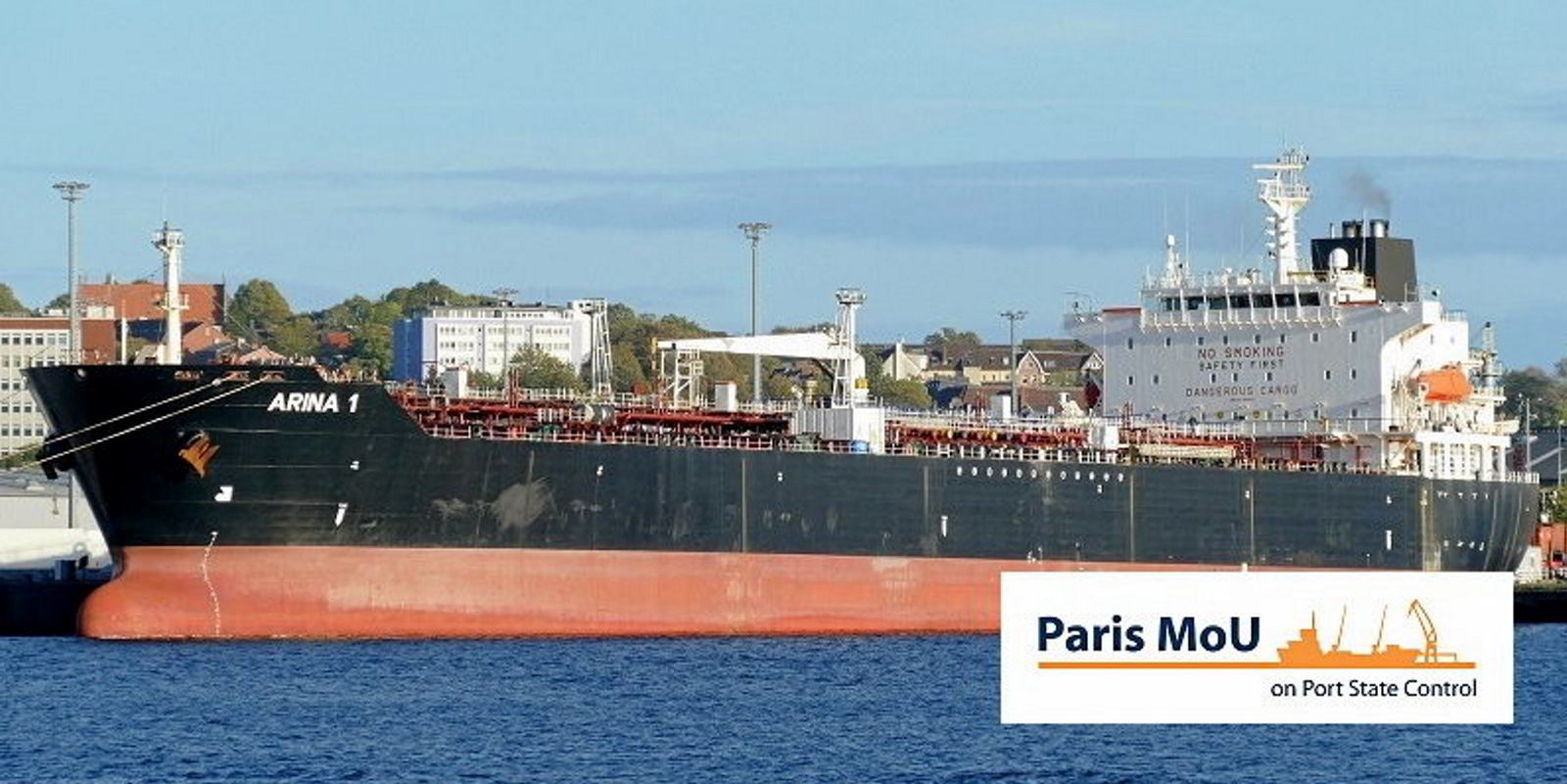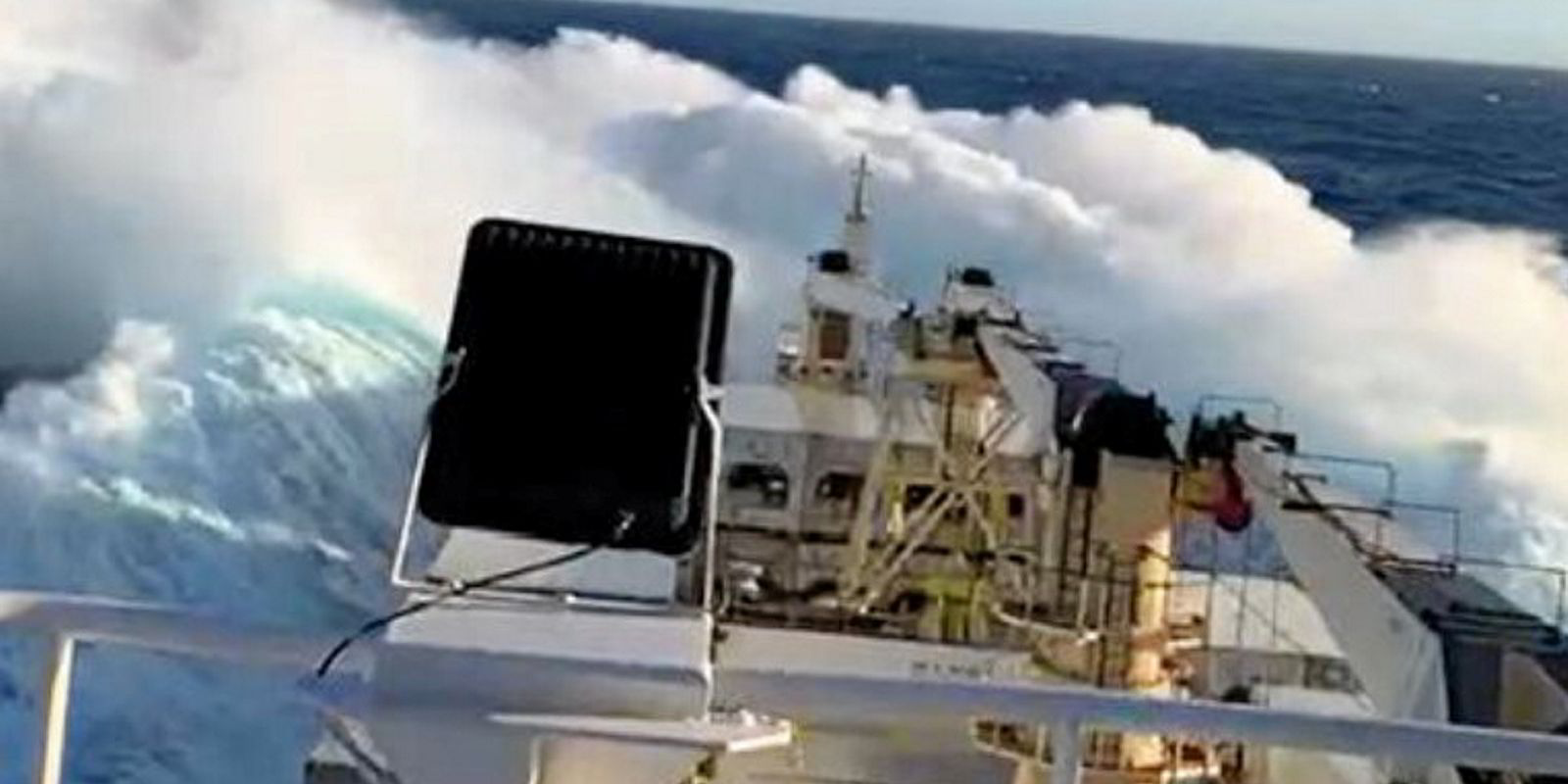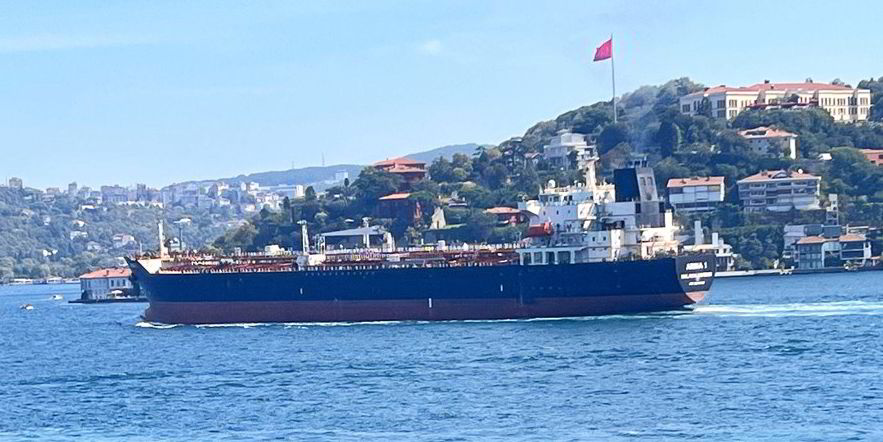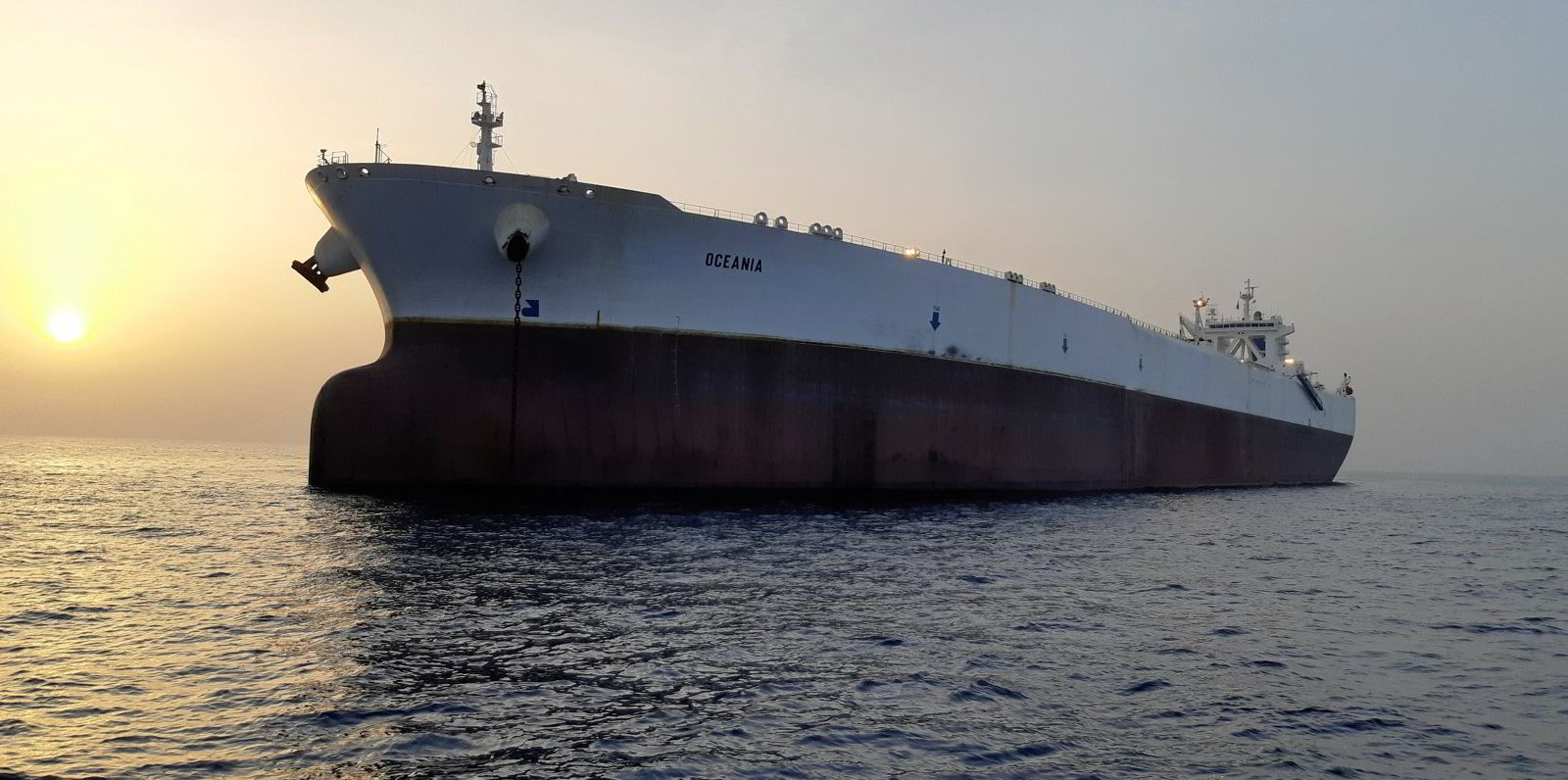Greek authorities detained a product tanker and arrested its master on Saturday over claims that he was holding three individuals on board against their will.
Coastguards did not identify the ship but video footage released its location and description, suggesting it to be the 46,200-dwt Arina 1 (built 2003), flying the Palau flag.
The vessel, which is managed by Dubai-based Petrofleet Ship Management, was banned by the Paris MoU port state control from calling at European terminals last month, as TradeWinds reported.
However, the port ban is not the reason Greek special forces boarded the Arina 1 in the Aegean Sea on 10 February and have detained it since off the island of Chios.
Greek authorities have said instead that they intervened after being notified by a Greek person on board that he was being kept there against his will.
When they boarded the vessel, coastguards found another two Filipino men claiming the same.
The vessel was intercepted as it was sailing to Egypt from Izmir — a Turkish port outside the Paris MoU’s remit.
After being detained “in very harsh conditions” on Chios for about a day, the master was released from custody and returned to the Arina 1 on Sunday.
He is set to appear at a local court on 15 February facing as yet unknown charges, Petrofleet said.
Six armed members of Greece’s security forces remain on board to guard the ship, which is a cause of anxiety for the crew, Petrofleet added.
Greek officials have clarified neither the reason for the alleged abduction of the three men nor their role on board the Arina 1.
The official reason cited by authorities for detaining the ship in Chios was its “insufficient crewing”.
Red Sea woes
The Paris MoU banned the Arina 1 on 26 January, after the ship failed to call at a Dubai repair yard under an agreement that had ended its three-month detention in Germany.
Inspectors checking the vessel in September at the port of Kiel identified 42 deficiencies and detained it because of problems with crew training, pollution measures, lifeboats and poor maintenance.
According to Equasis, its latest voyage charterer was a Russian entity.
Asked by TradeWinds to comment, Petrofleet claimed in an email on Monday that the Arina 1 did not go to Dubai because it had to stop en route in Port Said, “as several Indian crew wanted to sign off as they refused to sail via [the] Red Sea because of the Houthi attacks”.
While in Port Said, the vessel’s owners agreed to sell the ship to Greece-based interests registered in Liberia.
As part of the agreement, three buyers’ representatives boarded the ship in Port Said and accompanied it to Izmir, where the Arina 1 was supposed to be delivered to its new owners.
This part of Petrofleet’s account is corroborated by the Greek news website Proto Thema, which reported that the three people who claim to have been abducted had boarded the Arina 1 to inspect the vessel on behalf of prospective Greek buyers.
However, after the ship arrived in Izmir the transaction fell apart.
According to Petrofleet, the unidentified buyers terminated the deal when the memorandum of agreement’s cancellation date arrived and then they tried to arrest the ship.
The move to arrest may be connected with the fact that the prospective buyers had previously deposited the customary 10% advance on the vessel’s price with an escrow agent.
This hypothesis is corroborated by Proto Thema’s reporting, which said that Turkish authorities were about to detain the ship over a $1m debt owed by its owners.
‘Vindictive buyers’
Petrofleet acknowledges that the Arina 1 left Izmir after owners became aware of moves to arrest the vessel.
The buyers’ representatives, however, remained on board “as buyers were still discussing with us a price reduction proposal with a view to continuing the MoA”, Petrofleet said.
Proto Thema presents the issue differently. According to the website, the three inspectors were stuck on board and the master falsely enlisted them as ordinary crew members.
The three were then allegedly held in their cabins but managed to communicate with Greek authorities after they realised that the vessel was not heading towards a nearby anchorage, as the master had supposedly told them, but to Egypt instead.
“I don’t know if they got in touch by phone or by email,” one shipping ministry official told TradeWinds, without commenting on any other aspect of the dispute.
Petrofleet attributes the whole affair to “vindictive buyers who tried to arrest the vessel in Izmir and failed”.






